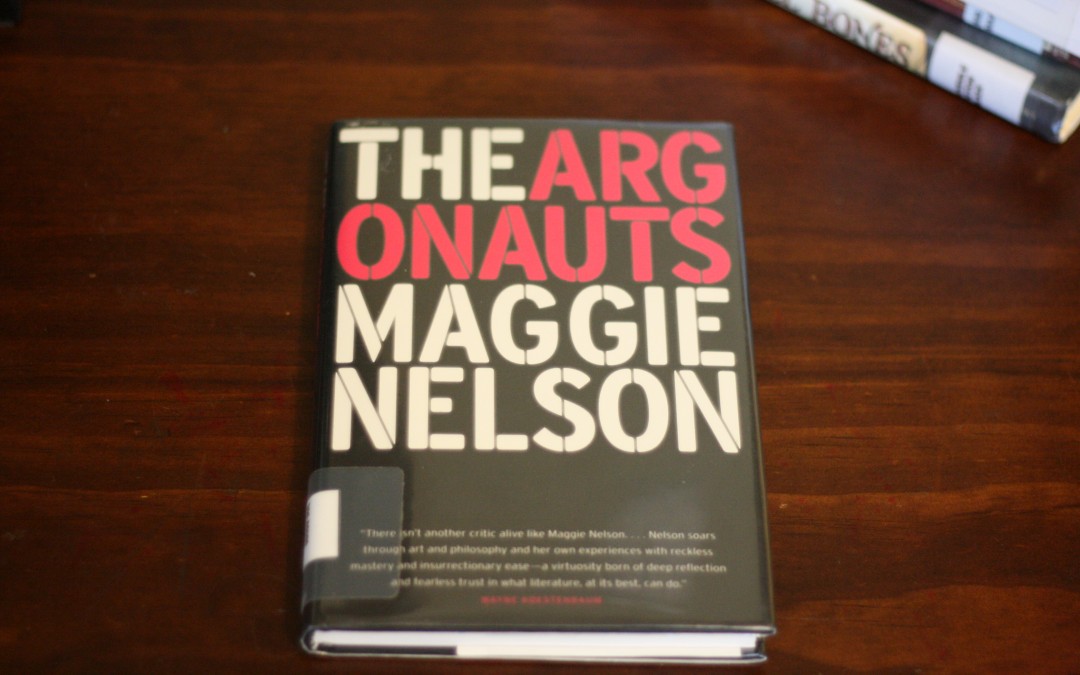During my Sabbath week I finished two adult memoirs that I really loved. The first was The Argonauts, by Maggie Nelson. This book is a love story. It’s a meditation on what it means to be a family, what it means to be male and female. It’s a candid look at gender biases, motherhood, parenthood, the daily moments of life and what it means to be human.
Nelson has a very poetic style, which was engaging from the moment I started reading. There were moments where I was completely captivated by her prose and her storytelling. She alternated storytelling with her deeper, poetic meditation, and I found it gripping and beautiful.
What I liked most about The Argonauts was that while it was a shortish read, it wasn’t light material. I had to take the book in pieces. Fortunately, it was written in pieces, a few paragraphs here, a few paragraphs there, so that made it easy to step aside and really think about and process what Nelson was saying.
The Argonauts is sort of a controversial book and has won all sorts of awards. And while I might not necessarily agree with every point of view she laid out in the book (she gets very philosophical at times), I found it refreshing and encouraging that Nelson made herself vulnerable enough to not only share her life as the wife of fluidly gendered artist Harry Dodge but also share her thoughts about that life and the biases we all face in our society today.
The other memoir was Geoffrey Wolff’s 1990 classic Duke of Deception. This book was fascinating through and through. Wolff grew up the son of a professional con man. His father, who called himself Duke, made up everything he was and everything he did. He got jobs as an engineer by telling lies about where he’d gone to college, and then he quit them and went somewhere else, with a false identity ready for anyone who would hire him. Wolff idolized his father for a time, and even went through a stint where he tried to be like him, before he came to his senses.
Duke of Deception was an interesting look at a father who could never truly become what or who he was but, instead, became what and who he made himself to be.
It took me a while to read this one—not because it wasn’t engaging or because it was really long, but because some of the passages were just so unbelievable that I had to stop and process them for a time. That someone could exist who lied so frequently and so believably was a bit unsettling.
I enjoyed reading the whole book, but the end and the beginning were my favorite parts. I loved that Wolff used so much specificity in his prose; he set up his world around the reader. He presented his father truthfully, as the scoundrel he was, and yet you couldn’t help rooting for his father to be better and do better, because through it all, Wolff wrote with love and a sense of understanding, as is demonstrated in this passage:
“It was my father, though, who taught me that we should distinguish in this life between what we feel and what we feel we should feel. That if we can distinguish between these things we may have access to some truths about ourselves.”
I hope you enjoyed these book recommendations. Be sure to pick up a free book from my starter library and visit my recommends page to see some of my favorite books. If you have any books you recently read that you think I’d enjoy, contact me. I always enjoy adding to my list. Even if I never get through it all.


